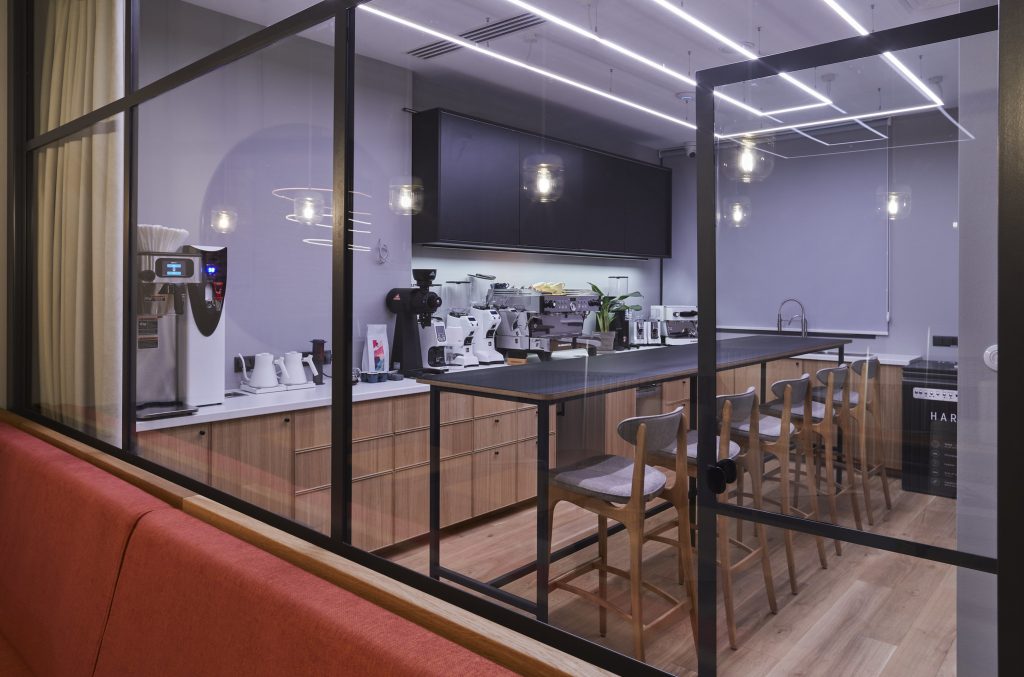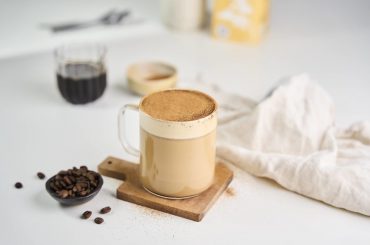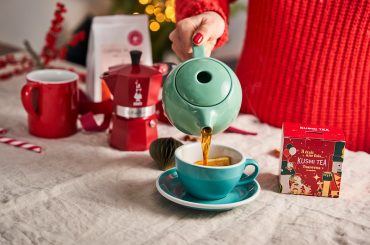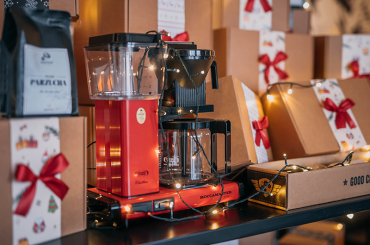‘Customer is king’ because ‘who pays the piper calls the tune’, says the old adage familiar to anyone in sales, especially in HoReCa industry. Hospitality is key and the customer’s opinion should always be valued but, perhaps, there’s something we can do to educate and broaden the knowledge of our visitors?
If the customer comes to your café and wishes to have an americano, americano with milk or regular black, it’s good to step forward and, instead of silently granting his wishes, lure them into the coffee world that is yet unfamiliar to him. You can thus shape your future client and make them eager to come back (probably more than once) because you’ve properly taken care of them, explaining the Coffee 101. Here’s a short and important guide to educating customers in a café.
#1 Be Sure of What You Know
A new customer popping into your café probably has some knowledge on coffee from various sources: they’ve read or heard a thing or two, they’ve vacationed in Italy, or their friend works in the coffee sector. Often such a coffee lover has some knowledge and ideas that they want to impose on the barista, even though those ideas don’t match the café’s concept. You can say ‘no’, tactfully yet firmly, to any ideas that don’t agree with you, while showing the alternative, for example: an espresso lighter than the Italian-style one, or drip coffee instead of americano on Brazilian beans. Encourage the customer, describing the flavour notes they can sense in espresso or the caffeine lightness and strength of pour-over coffee. If they like it, they’ll replace the old habit with a new one. If not, maybe it’s not the right time yet. It’s worth trying and remembering that you don’t put ‘pierogi’ on the pizzeria’s menu just because the customer likes them. The same goes for cafés and the beverages you serve.
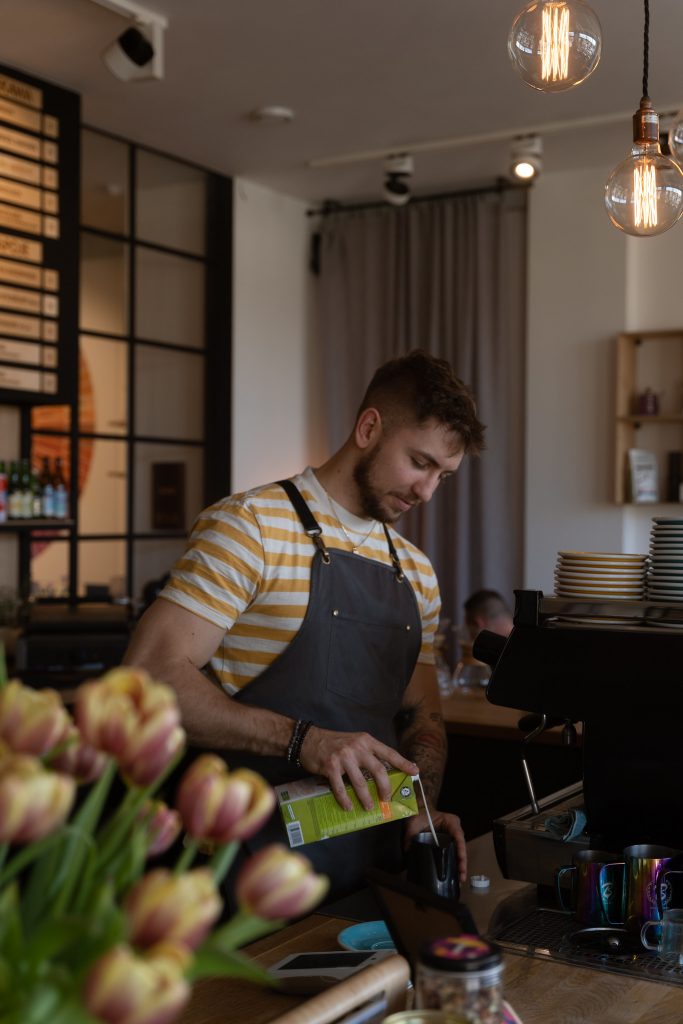
#2 Educate While Brewing!
While brewing drip coffee or espresso, it’s a good idea to explain what coffee you’re going to serve. You’re not supposed to overwhelm the customer with encyclopaedic history of coffee (unless they’re into such detailed storytelling, then go for it). Give them some key information, coffee subtleties, such as the origin, processing and variety of the beans – it won’t hurt to explain their characteristics and effect on the taste. What’s the point of such education? In time, your guests will be more aware of what they drink. Their choice of the beans and brewing method not will not be random. At last, they’ll catch the ‘coffee bug’ – they’ll buy accessories from your coffee shop and their favourite beans because they’ll finally know what they like.
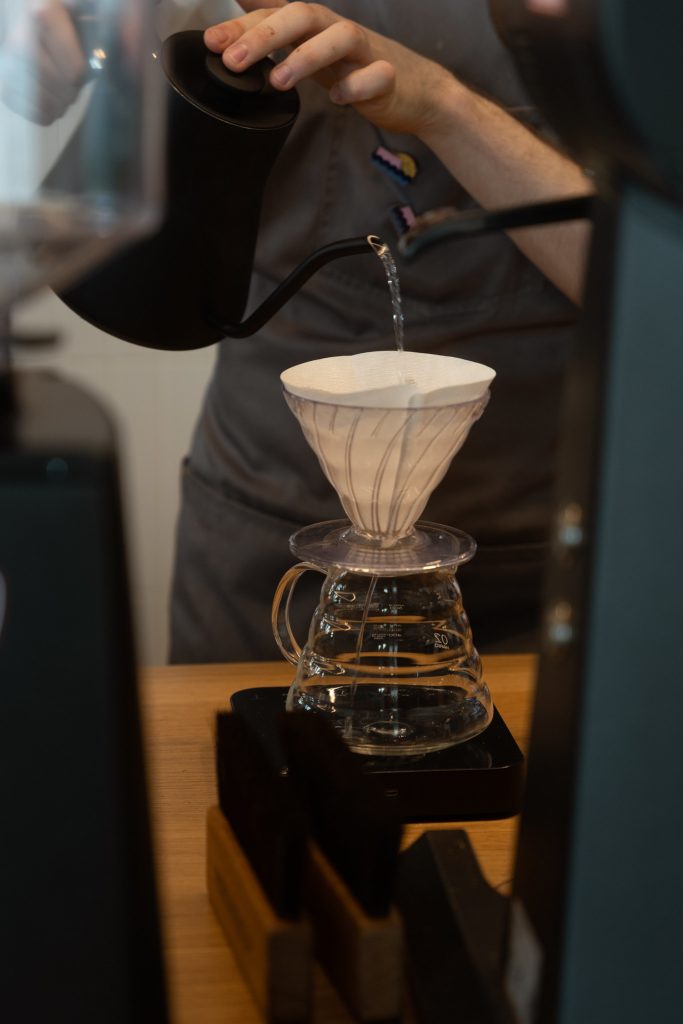
#3 The Shelf!
Once the client ‘catches the coffee bug’, they want to drink good coffee whenever they can, also at home or at the office. So, packets with coffee and basic brewing accessories should find their spot in your café. You don’t need much – a shelf or two is enough for starters, in time you can expand your offer using the tips from this article. A home barista will often broaden their knowledge on their own and come back for more.
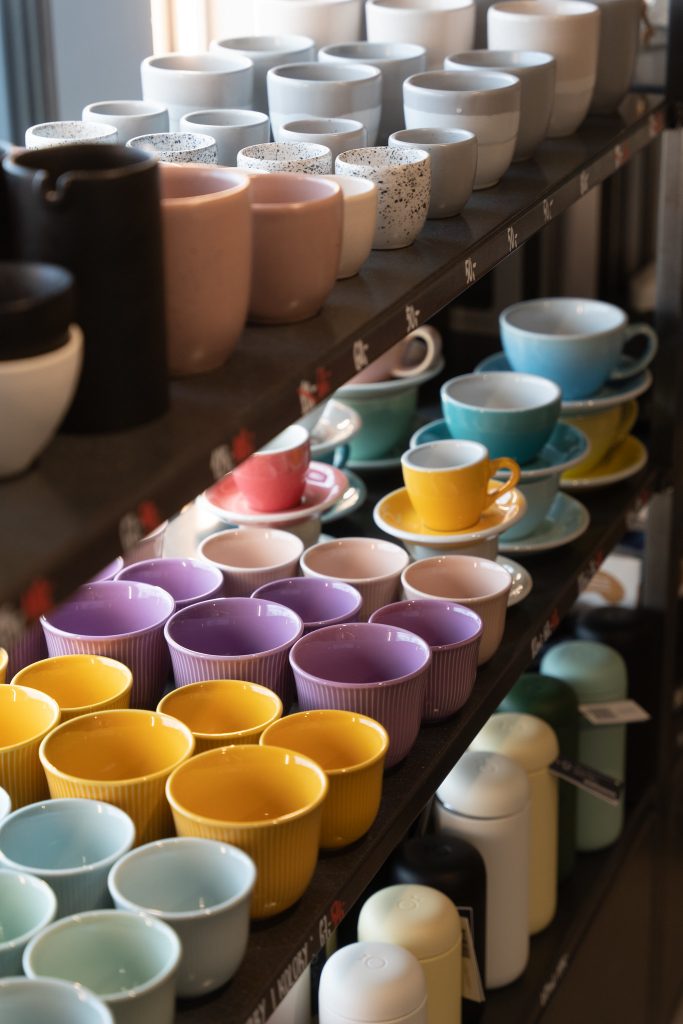
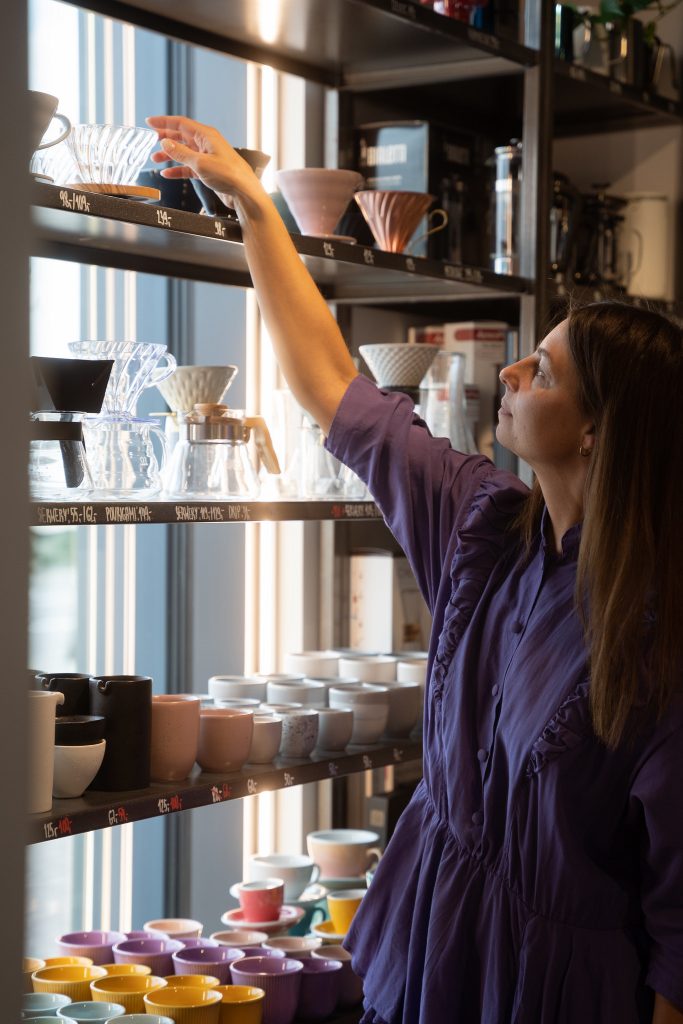
#4 Cupping/Workshops = New, Conscious Customer
Cupping or workshops in alternative coffee brewing are wonderful forms of development for cafés and their customers alike. Even if you’re not entirely comfortable with sensorics or you have no experience in organizing cupping, you can collaborate with a roaster that’s willing to run it. It’s a ‘fun and learn’ type of experience, a trial and error method, both business and pleasure. This form is equally attractive for coffee geeks who go to barista events and for those who’re not familiar with the industry but want to know more about coffee and boost their self-esteem. The same is true for workshops: from learning latte art to V60 for beginners. The modules can be developed at more advanced stages. New people are always coming. Besides, it’s a nice influx of cash for the café.
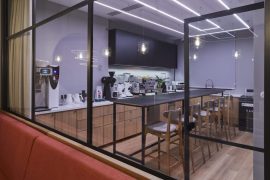
Summary
Educating guests in the café means broadening their coffee awareness, transmitting knowledge (also practical one) and encouraging them to learn more. It’s mutual benefit. For us it’s not only about financial profit but also gaining trust. Regular customer will happily buy not only well-brewed coffee profiled for them, but also packets with beans or accessories for home brewing. These are my wishes for you – to have customers who are thirsty of coffee and knowledge.

